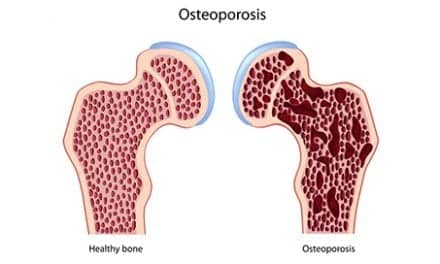A two-step care strategy reportedly improved function and decreased pain severity among veterans who have returned from Iraq and Afghanistan, producing at least a 30% improvement in pain-related disability, researchers say. The study was conducted by researchers at the Richard L. Roudebush VA Medical Center in Indianapolis, the Regenstrief Institute, and the Indiana University School of Medicine.
With pain’s disabling impact and its interference in daily living and ability to work, “It is a critical health issue among veterans, many of whom had multiple, often lengthy deployments,” says Matthew Bair, MD, in news story from the Indiana University School of Medicine.
Bair is the VA and Regenstrief Institute investigator and IU associate professor of medicine who led the randomized controlled trial, known as the Evaluation of Stepped Care for Chronic Pain (ESCAPE) trial. He is also an internist who treats veterans in primary care and is a health services researcher. Previously he served for 8 years as a US Army physician.
Bair notes that many veterans have significant, long-term pain and says medications alone are only modestly successful in helping them.
“The decrease in pain severity and 30% improvement in pain-related disability we achieved in the ESCAPE study are clinically significant, and we found that improvement lasted for at least 9 months,” Bair adds.
The story states that the ESCAPE study encompassed a total of 241 veterans of Operations Enduring Freedom, Iraqi Freedom, and New Dawn who experience musculoskeletal pain of the back, knee, neck, or shoulder. Bair and colleagues developed a two-step program blending analgesics, self-management strategies, and cognitive behavioral therapy.
According to the story, the study’s first step called for 12 weeks of medication treatment ranging from acetaminophen or naproxen sodium to opioids, coupled with pain self-management strategies such as deep breathing and other relaxation techniques. The second step involved 12 weeks of cognitive behavioral therapy, drawing upon evidence-based psychological treatments for both pain and depression.
Nurse care managers, who worked with the veterans to help counter maladaptive thought, the story says, provided the ESCAPE program over the phone. The nurse care managers also helped veterans to understand that while they might not be able to continue the rigorous activities they had prior to deployment, an alternate activity, such as swimming, might be achievable and decrease their pain.
The story reports that the veterans who received the two-step ESCAPE program saw improvement in their function and a decrease in their pain severity and pain interference, or how pain interferes with mood, physical activity, work, social activity, relations with others, sleep, and enjoyment of life.
Study patients who were randomized to usual care were provided educational handouts about musculoskeletal pain and were advised to discuss their pain with their physicians. These patients continued medications, clinic visits, specialty referrals, and other care as usual.
The release says all veterans in the study had experienced moderate to severe chronic pain for more than 3 months. Veterans with current substance or alcohol dependence were excluded, as well as individuals with active suicidal ideation, active psychosis, or schizophrenia.
Source: from Indiana University School of Medicine





